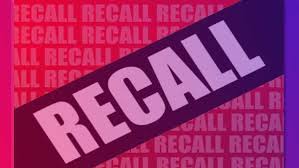 After a food company’s frozen ground beef was ordered recalled by the Department of Agriculture [USDA], the food company made a claim under its Contamination Products Insurance policy issued by defendant insurers. Coverage was denied on various grounds, and the food company sued for breach of contract and bad faith. Finding no triable issues of fact, the trial court granted defendant insurers’ motion for summary judgment. On appeal, the battle was fought over whether the insurance policy covers ingredients obtained from a supplier and used in the food company’s products, and whether the food company had to show there was contamination or tampering with its product during or after manufacture. The majority in the Court of Appeal decision affirmed, concluding the policy is not ambiguous and holding “the policy’s definition of what constitutes an insured product clearly does not encompass an ingredient obtained from a supplier.” The dissenting justice stated: “[T]he more reasonable reading of the policy is that the product, and all of its ingredients, are insured for adulteration regardless of when the adulteration occurs. Thus, to the extent there are two reasonable interpretations, the policy is ambiguous and should be construed against the insurer; the summary judgment should be denied.” (Windsor Food Quality Co., Ltd. v. Underwriters of Lloyds of London (Cal. App. Fourth Dist., Div. 2; March 3, 2015) 234 Cal.App.4th 1178 [184 Cal.Rptr.3d 477].)
After a food company’s frozen ground beef was ordered recalled by the Department of Agriculture [USDA], the food company made a claim under its Contamination Products Insurance policy issued by defendant insurers. Coverage was denied on various grounds, and the food company sued for breach of contract and bad faith. Finding no triable issues of fact, the trial court granted defendant insurers’ motion for summary judgment. On appeal, the battle was fought over whether the insurance policy covers ingredients obtained from a supplier and used in the food company’s products, and whether the food company had to show there was contamination or tampering with its product during or after manufacture. The majority in the Court of Appeal decision affirmed, concluding the policy is not ambiguous and holding “the policy’s definition of what constitutes an insured product clearly does not encompass an ingredient obtained from a supplier.” The dissenting justice stated: “[T]he more reasonable reading of the policy is that the product, and all of its ingredients, are insured for adulteration regardless of when the adulteration occurs. Thus, to the extent there are two reasonable interpretations, the policy is ambiguous and should be construed against the insurer; the summary judgment should be denied.” (Windsor Food Quality Co., Ltd. v. Underwriters of Lloyds of London (Cal. App. Fourth Dist., Div. 2; March 3, 2015) 234 Cal.App.4th 1178 [184 Cal.Rptr.3d 477].)